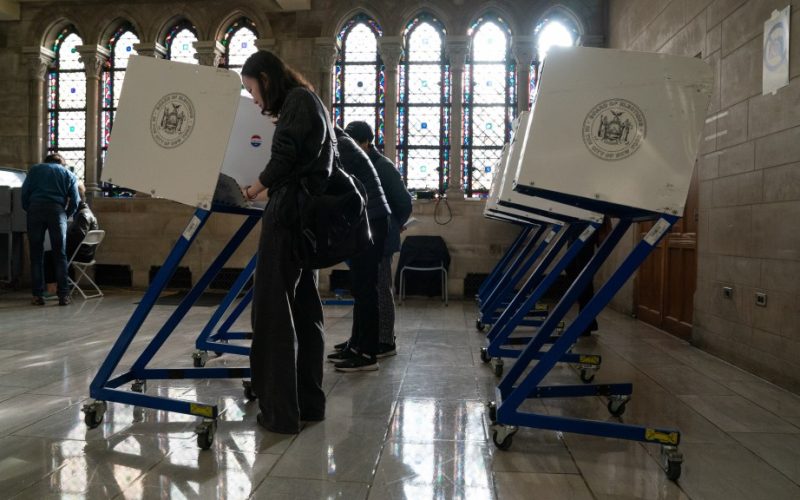Women keep New York City running, by working, caregiving, volunteering, and organizing; but too often they face barriers that prevent them from voting, particularly in local elections. In federal elections, New York City women consistently vote at higher rates than men: 69% compared to 65%. And no group turns out more reliably than Black women, whose rate reaches an impressive 77%.
But as New Yorkers head to the polls for this month’s primaries, and again in November, we can expect turnout to be far lower than it should be. Because local elections have a greater and more direct impact on daily lives, we must act to ensure New Yorkers, especially women, are voting at levels high enough to secure the representation they deserve.
Thanks to dedicated advocates and elected officials, New York already has taken significant steps to expand and safeguard voting rights, with the John Lewis Voting Rights Act of New York, a complementary legislative package aimed at strengthening democracy, and the more recent expansion of voting by mail. Nevertheless, there is still more we can do to ensure every woman can access and exercise her right to vote.
The organization I lead, Women Creating Change, founded by suffragists 110 years ago, recently released a report that examines how women engage civically, the barriers they face, and the policy changes needed to expand participation — especially for voting — to ensure that women’s civic engagement is front and center.
Our report’s findings, presented in The Power of Participation: Women’s Voting and Civic Engagement in New York City, make one thing clear: Women are deeply engaged in civic life, but structural and systemic barriers are still holding too many back, especially in communities of color and among those facing financial hardship.
Examining the data collected from the U.S. Census Bureau’s Current Population Survey (CPS) Voting and Registration Supplement (eligible voters who live in New York City), we found the obstacles women face when it comes to engaging in their communities, especially voting.
The most persistent include wage inequality and the gender pay gap, the lack of same-day voter registration and inflexible voting hours, and caregiving responsibilities. In fact, 21% of women cite illness or care work as reasons for not voting — nearly twice the rate of men.
What can be done? Firstly, it is time to align local elections with the federal election cycle. According to an analysis from the University of Chicago’s Center for Effective Government, this will boost overall participation and reduce racial and economic disparities. We also must implement same-day voter registration, expanded voting hours, multi-lingual support, and community-specific outreach to increase access and awareness. These are the most straightforward solutions to structural barriers.
Confronting systemic barriers is more complicated. New York women, particularly women of color who work in the care sector and who face economic insecurity, experience “time poverty,” struggling to find time for civic activities while managing full workdays and caregiving responsibilities.
These deeply rooted challenges, which we have previously examined in reports on the gender pay gap and industrial and occupational segregation, can be addressed by: increasing pay for the human-services workforce, who are predominantly women of color and among the lowest paid; indexing the minimum wage to the cost of living; enhancing tax credits that benefit families; and raising unemployment insurance benefits for those making the least, while improving access.
All of these remedies benefit everyone by strengthening our democracy and providing essential support to women of color.
The 2025 elections may be just out of reach for these changes, but we must begin the work today to shape and strengthen every local election to come. If we want elected officials to prioritize low-cost, reliable, and nurturing child care; fair wages and opportunities for advancement; and safe, affordable, and livable housing, we need more women to vote.
Let’s make it easier for them. Our future depends on it.
Sewell-Fairman is the president and CEO of Women Creating Change, a 110 year-old nonprofit, nonpartisan, activist organization committed to advancing women’s rights and shaping the future of New York City.








